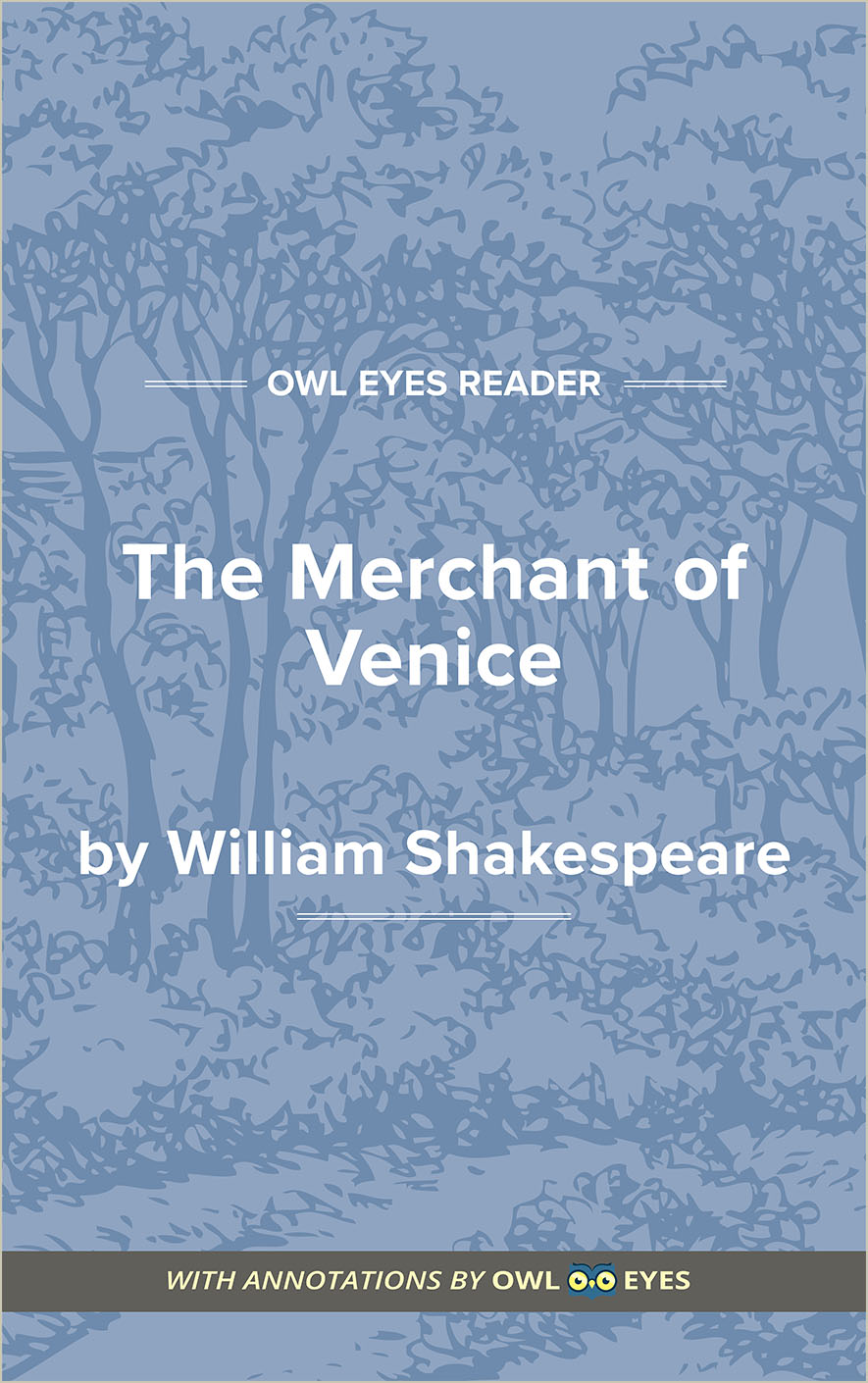- Annotated Full Text
- Literary Period: Renaissance
- Publication Date: 1605
- Flesch-Kincaid Level: 8
- Approx. Reading Time: 1 hour and 47 minutes
The Merchant of Venice
Though originally marketed as a romance and a comedy, The Merchant of Venice is read today as a controversial example of anti-Semitism. Written in 1596, the play features a cast of Christian characters poised against Shylock, a Jewish moneylender. Bassanio, a Venetian merchant and prodigious spender, seeks to marry Portia, a rich heiress. In order to travel to Portia’s castle and win her hand, Bassanio must borrow money from Antonio, a rich merchant and good friend. However, because Antonio’s money is tied up in ships at sea, he must take a dangerous bond from Shylock: if he cannot repay the full price of the bond back by the closing date, he must give Shylock a pound of his flesh. Antonio takes the bond because of his love for Bassanio, and Shylock offers this draconian bond because of the many years of abuse he has endured at the hands of these anti-Semitic Christians. Throughout the rest of the play, Shylock exhibits multiple degrading stereotypes associated with Jewish populations. However, unlike many other Jewish characters portrayed on England’s early modern stage, Shakespeare’s Shylock is humanized: he is given not only motivations for his anger and revenge, but the most famous and eloquent lines in the play. He is the only character who does not deceive the other characters and the only character who values his faith over money. Shylock remains the most memorable character of this play.
- Annotated Full Text
- Literary Period: Renaissance
- Publication Date: 1605
- Flesch-Kincaid Level: 8
- Approx. Reading Time: 1 hour and 47 minutes

